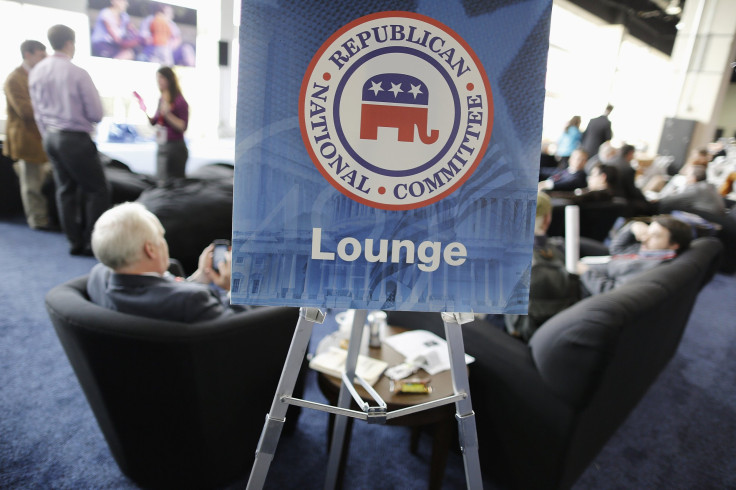RNC Votes To Boycott CNN, NBC But Experts Say Republicans Would Suffer Instead

The Republican National Committee on Friday made its first step toward structuring the 2016 primary debates, by voting to not allow CNN and NBC to host any GOP presidential primary debates, and at the same time attempt to hurt probable candidate Hillary Clinton's chances of snagging the Democratic presidential nomination. The ban also reportedly includes the networks' Spanish-language channels.
The two networks recently announced plans to produce programs on the former first lady ahead of the 2016 presidential elections. Clinton is yet to announce if she will make another run.
Speaking at the RNC Summer Meeting in Boston, Chairman Reince Priebus said the networks' plans to spend millions to create and air a documentary and miniseries about the former first lady is an “obvious bias.”
“It’s time that we do what’s right for our party and our candidates,” Priebus said. “And by the way, this is the right thing to do for voters. They’re not going to get a real debate of substance if it’s run by a network who wants to help out Hillary Clinton."
“We’re done putting up with this nonsense,” he added. “There are plenty of other outlets. We’ll still reach voters, maybe more voters. But CNN and NBC anchors will just have to watch on their competitors’ networks. The media overplayed their hand this time.”
CNN responded to the vote in a statement, noting that its documentary will be a nonfiction look at Clinton’s life.
“The project is in the very early stages of development, months from completion with most of the reporting and the interviewing still to be done,” the statement read. “Therefore speculation about the final program is just that. We encouraged all interested parties to wait until the program premieres before judgments are made about it. Unfortunately, the RNC was not willing to do that.”
There were at least 20 debates in the last election cycle, seven of which were hosted by CNN and four by NBC News and its cable affiliates. Getting a handle on the number of debates was a recommendation made in the RNC’s election post-mortem report released earlier this year. The report pointed out that in 1980 there were only six primary debates, and seven in 1988, but a whopping 21 debates in 2008.
The writers of the report recommended slashing those in half to approximately 10 to 12 and also beginning these debates no earlier than Sept. 1, 2015, with the last debate after the first primary, around February or March 2016.
CNN and NBC announced their plans for Clinton documentaries last month, and Priebus threatened to vote to boot them if they did not renounce. However, the networks said they would not cave, and asked that the RNC reserve judgment after seeing the actual content.
But political scientists say this move will probably be a boon for the ratings of the networks and a shot in the foot for the Republican Party.
“I don’t see how that punishes the news media,” says Jeffrey Peake, a political science professor at Clemson University in South Carolina. “It seems rather obstinate, in my opinion. History shows that when presidents or political actors try to punish the media it just comes back to bite them.”
Peake said other media would circle the wagon, attacking Republicans for their censorship and making them look bad among those who aren’t aligned with the party.
“Networks should be able to televise whatever they want,” he said. “Hillary Clinton is a public figure. The fact that she might run for president -- and she came darn close to winning the last time as the first major woman candidate for president -- that makes her a story. The networks should be allowed to document whatever major historical story.”
And there is no indication that the Clinton productions would be all fluff. After all, her husband was impeached -- and Republicans in the House are still trying to hold the former first lady accountable for the Benghazi incident last year.
Peake was involved in a 2010 study of the coverage of Clinton’s 2008 Democratic presidential nomination. In it, researchers found that she was characterized in a “disproportionately negative manner” when compared to the men in the race. Her marital status was mentioned at a much higher rate than President Barack Obama’s.
“It paints [Republicans] as an extremist organization, out of the mainstream, out of touch with regular American people,” said Tom Whelan, a political historian at Boston University. “I think regular Americans just don’t understand this kind of ideological fervor that’s coming from the Republican right to the point that where they feel they can dictate what’s going to air on network television.”
“What they want to see happen is not having mention of Hillary,” he added. “They want to control the message.”
If the networks should cave and eliminate the Clinton productions it’s a de facto win, Whalen said, adding that “[the RNC] is using the tactic of intimidation to try and browbeat the networks into dropping these programs, which arguably are not political.”
But according to Whalen, Republicans are possibly further alienating themselves from women voters, who may not be too happy about “Republicans advocating censoring Hillary Clinton from network television.”
© Copyright IBTimes 2025. All rights reserved.






















